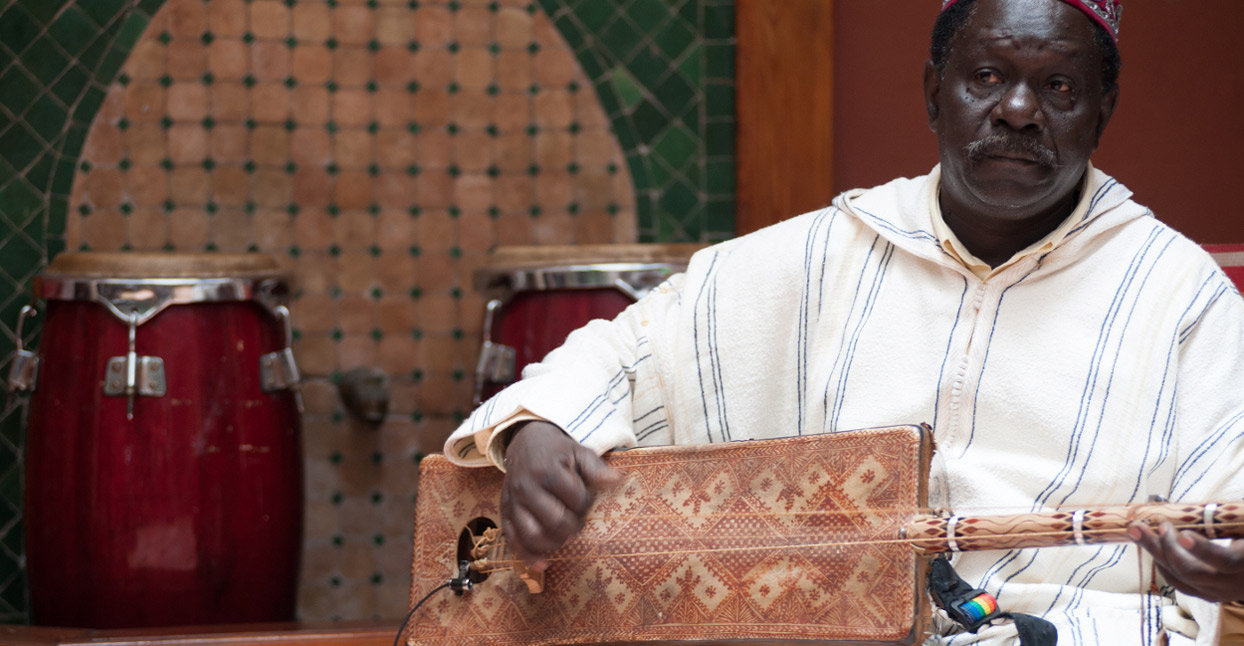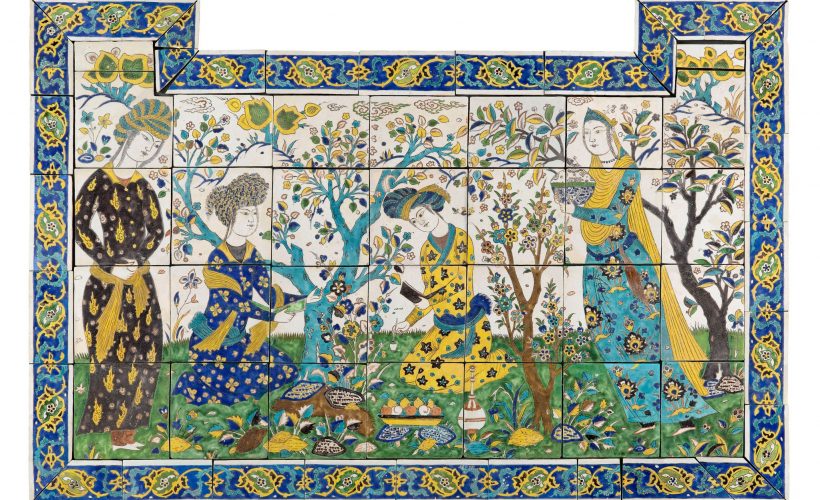History & Heritage
5.5.2023
Gnawa, a mainstay of Moroccan music

Gnawa music is an amalgamation of indigenous African rhythms, spiritual chants, and trance-like melodies. Its origins can be traced back to the ancient West African communities of the Sahel, located in present-day Mauritania, Senegal, Mali, and Niger. Brought to Morocco by the Gnawa, who were once West African slaves, their musical traditions have been intimately woven into Morocco’s multifaceted cultural fabric.
From West African origins to the global stage
Gnawa music is an amalgamation of indigenous African rhythms, spiritual chants, and trance-like melodies. Its origins can be traced back to the ancient West African communities of the Sahel, located in present-day Mauritania, Senegal, Mali, and Niger. Brought to Morocco by the Gnawa, who were once West African slaves, their musical traditions have been intimately woven into Morocco’s multifaceted cultural fabric.
Voir cette publication sur Instagram
The development of Gnawa music in Morocco is inextricably linked to the Trans-Saharan slave trade, which spanned from the 8th to the 19th century. The Gnawa were also part of the Abeed al Bukhari, an elite unit of slave-soldiers responsible for protecting Moroccan royalty. Over time, the Gnawa integrated into Moroccan society, and their music evolved into a unique synthesis of traditional African elements as well as Arab and Berber influences.
At the heart of Gnawa music lies a deep spirituality often associated with healing rituals and ceremonies known as “lila” or “derdeba.” Guided by a “maalem” or master musician, these events use music to induce trance states, allowing participants to commune with ancestral spirits and seek guidance, healing, or protection. Women play a crucial role in Gnawa music, not only as performers but also as organizers and hosts of ceremonies, ensuring the perpetuation of the tradition across generations. Furthermore, the Gnawa genre has been registered on the UNESCO World Heritage List by Morocco.
Key instruments of Gnawa music
Among the traditional instruments that form the foundation of Gnawa music are the guembri, a three-stringed bass made of hollowed wood and adorned with camel or goat skin, as well as the krakebs, large metal castanets that produce a distinctive and percussive sound.
Voir cette publication sur Instagram
Renowned Gnawa musicians, including Maalem Mahmoud Guinia and Hamid El Kasri, have gained international fame due to their captivating performances and mastery of the unique instruments of the music. Gnawa music has experienced a resurgence in recent years, with artists from various genres incorporating its hypnotic sound into their own work. Fusion projects, such as those led by Hamid El Kasri, blend Gnawa music with jazz, blues, reggae, and electronic music, inviting new audiences to discover this ancestral tradition.
The Gnawa World Music Festival, held annually in Essaouira, Morocco, is a celebration of the music, culture, and heritage. Established in 1997, the festival has become one of Africa’s largest music events, attracting both local and international artists, as well as thousands of visitors from around the world.
popular

